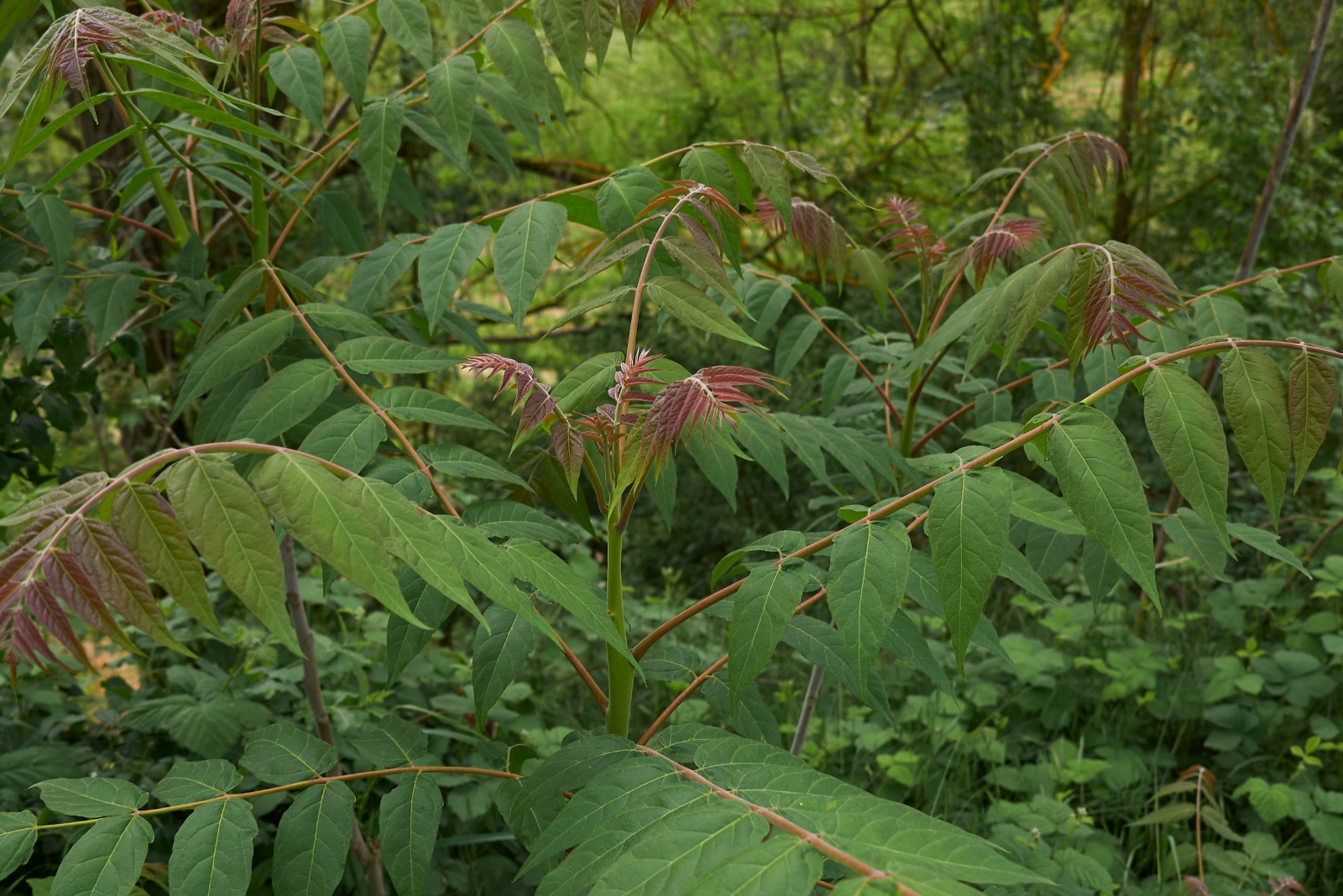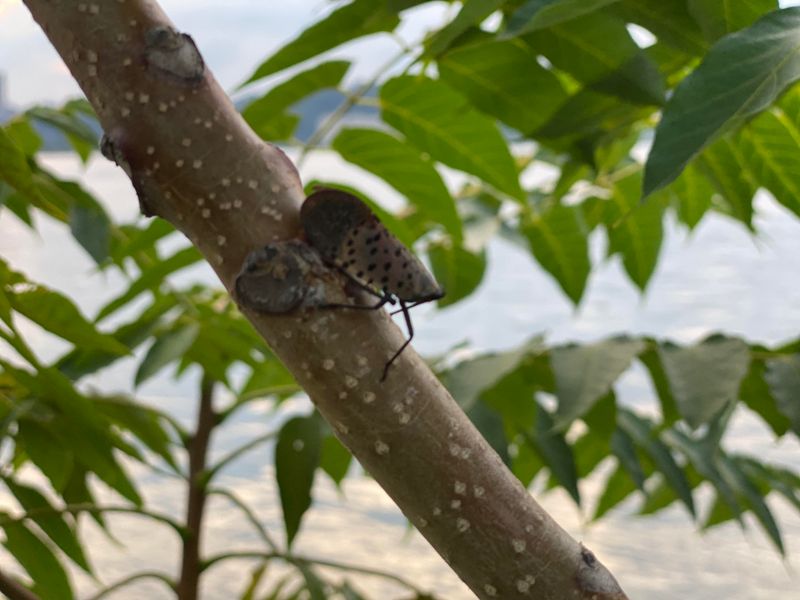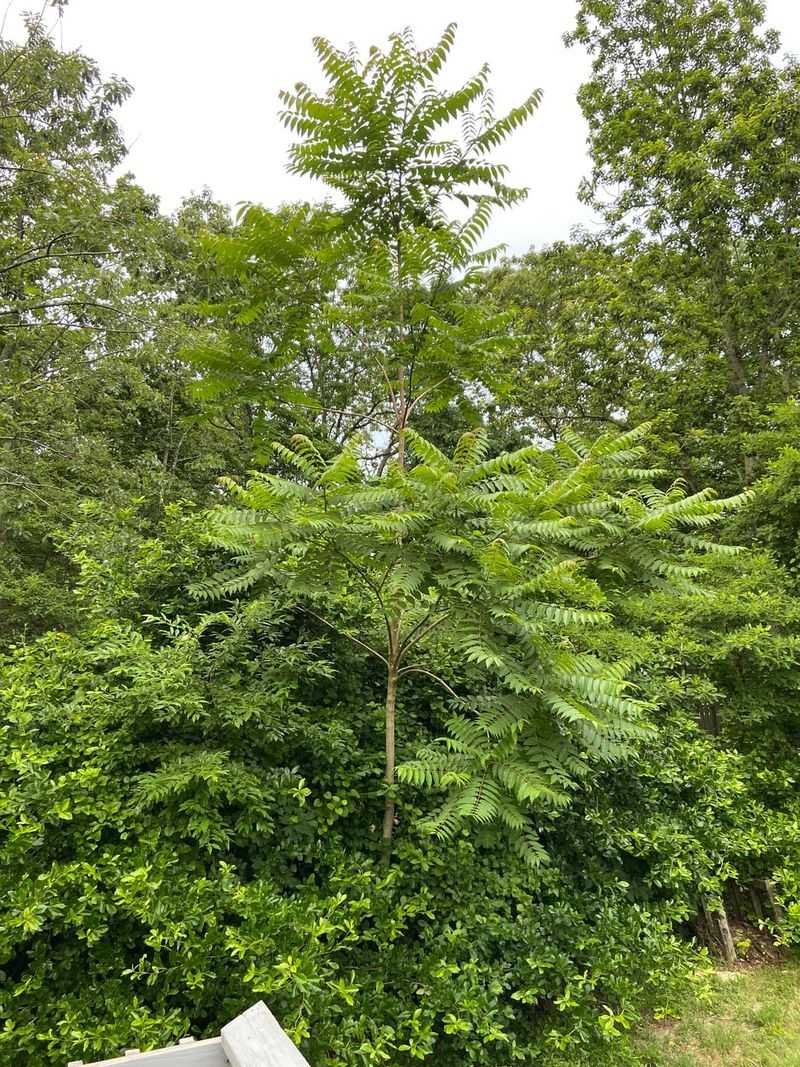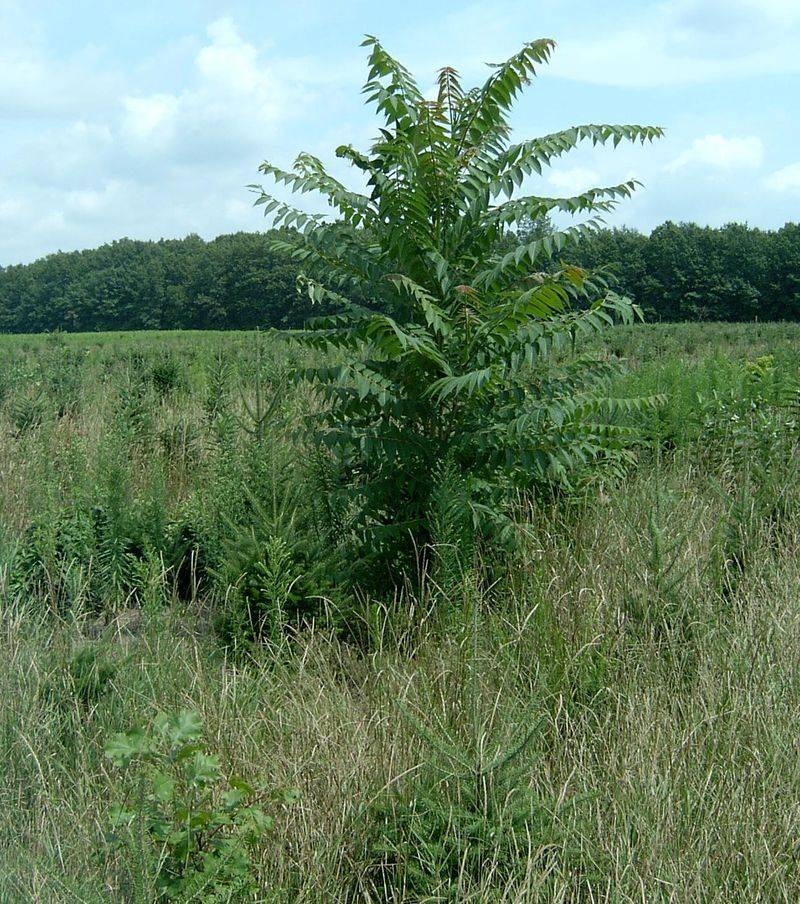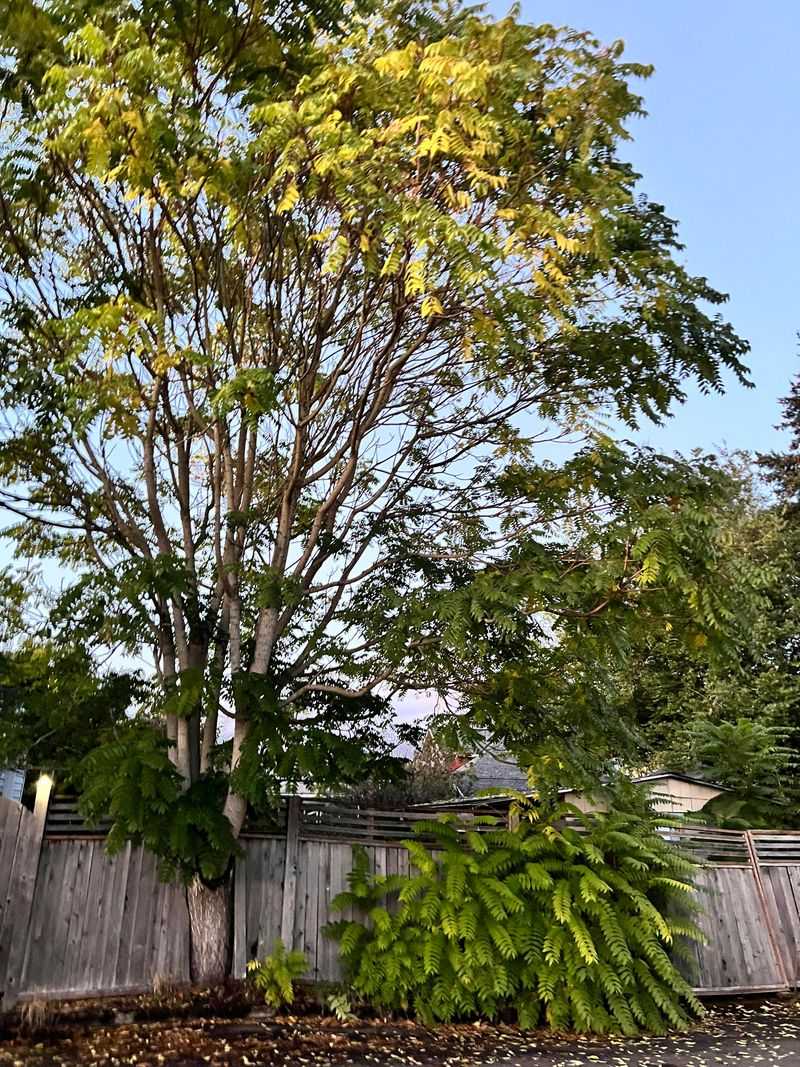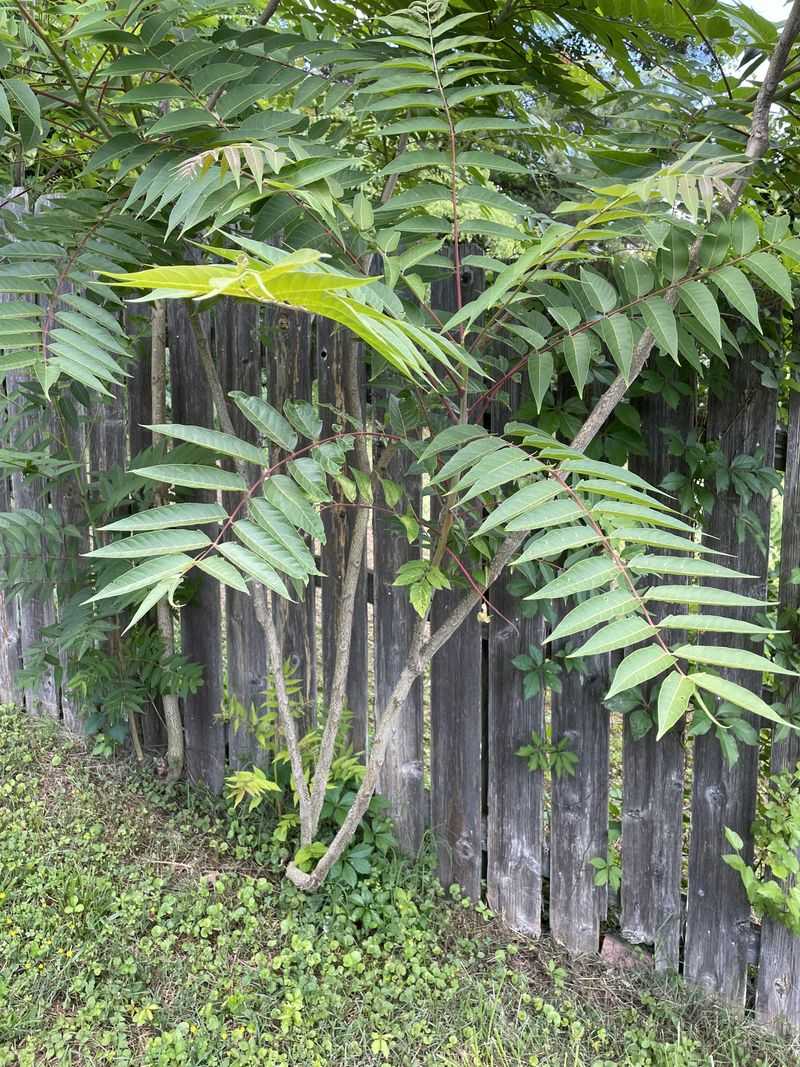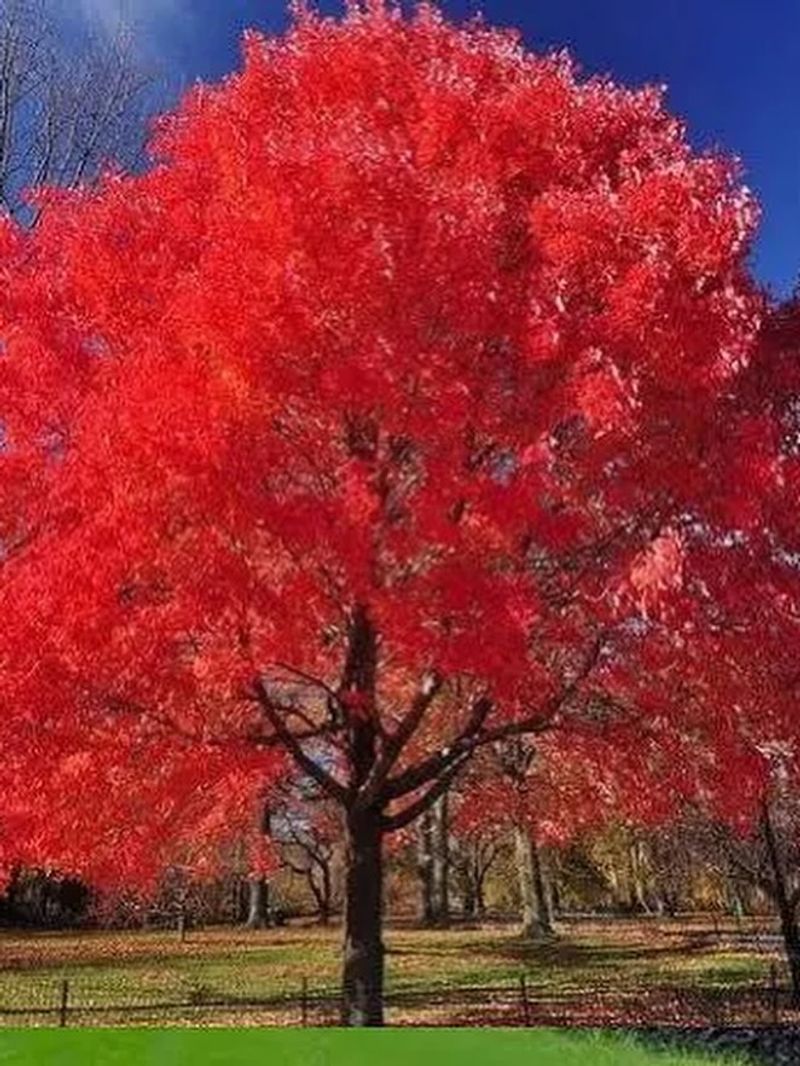One tree in Virginia is practically a magnet for lanternflies—the notorious tree of heaven. I remember spotting these pests clustering around one in my neighborhood, and that’s when I realized how much trouble it attracts.
This fast-growing tree might look harmless, but it gives lanternflies exactly what they need to multiply fast. Avoiding it in your yard is one of the best ways to keep these invasive bugs from taking over.
1. It Attracts Spotted Lanternflies Like a Magnet
Spotted lanternflies absolutely love Tree of Heaven more than any other plant. They feed on its sap, lay eggs on its bark, and use it as their primary host throughout their entire life cycle.
When you plant this tree in Virginia, you’re basically rolling out a welcome mat for these destructive pests. Instead of controlling them, you’re giving them exactly what they need to multiply rapidly.
Removing these trees from your property makes much more sense than adding more.
2. Tree of Heaven Spreads Aggressively Across Virginia
Once established, Tree of Heaven becomes nearly impossible to control in Virginia landscapes. A single tree produces thousands of seeds annually, and its roots send up new shoots constantly, creating dense thickets.
Wind carries the winged seeds across neighborhoods, highways, and natural areas. Before long, one innocent tree becomes dozens invading gardens, forests, and parks throughout Virginia communities.
Its aggressive growth crowds out native Virginia plants that wildlife actually depends on for survival.
3. Native Virginia Plants Suffer When It Takes Over
Tree of Heaven produces chemicals in its roots that poison the soil around it, making life difficult for native Virginia plants trying to grow nearby. This sneaky strategy gives it an unfair advantage over species that belong here naturally.
Virginia’s oak trees, wildflowers, and shrubs struggle to compete with this aggressive invader. When native plants disappear, so do the insects, birds, and animals that depend on them.
Protecting Virginia’s natural plant communities means avoiding this problematic tree entirely.
4. Removing It Later Costs Virginia Property Owners Dearly
Getting rid of Tree of Heaven once it establishes itself in Virginia yards becomes an expensive nightmare. Simply cutting it down makes the problem worse because the roots respond by sending up dozens of new shoots.
Professional removal requires repeated herbicide treatments over multiple years, costing hundreds or thousands of dollars. Many Virginia homeowners regret ever letting this tree gain a foothold on their property.
Prevention through avoidance saves money, time, and frustration down the road.
5. Virginia’s Ecosystem Balance Gets Thrown Off Completely
Healthy Virginia ecosystems depend on a delicate balance between native plants, insects, and animals that evolved together over thousands of years. Tree of Heaven disrupts this balance dramatically when it invades natural areas.
Birds that migrate through Virginia need native plants producing the specific insects and berries they recognize as food. When invasive trees dominate the landscape, these creatures struggle to find proper nutrition.
Maintaining ecological health means choosing plants that support Virginia’s natural food webs.
6. It Creates Perfect Breeding Grounds for More Pests
Beyond spotted lanternflies, Tree of Heaven attracts various other problematic insects that damage Virginia gardens and crops. Stink bugs, aphids, and scale insects find this tree particularly appealing as a host plant.
When pest populations explode on Tree of Heaven, they eventually spread to nearby vegetable gardens, fruit trees, and ornamental plants throughout Virginia neighborhoods. Your tomatoes and roses become collateral damage.
Planting better alternatives protects your entire yard from increased pest pressure and damage.
7. Better Tree Options Exist for Virginia Landscapes
Virginia offers countless beautiful native trees that provide shade, beauty, and wildlife benefits without the headaches Tree of Heaven brings. Red maples, oak species, and dogwoods thrive in Virginia’s climate naturally.
Native trees require less maintenance, resist local pests better, and support beneficial insects that birds and butterflies need. Your Virginia yard becomes a healthier, more sustainable space when you choose appropriate species.
Local nurseries can recommend perfect alternatives suited specifically to your Virginia property’s conditions.

